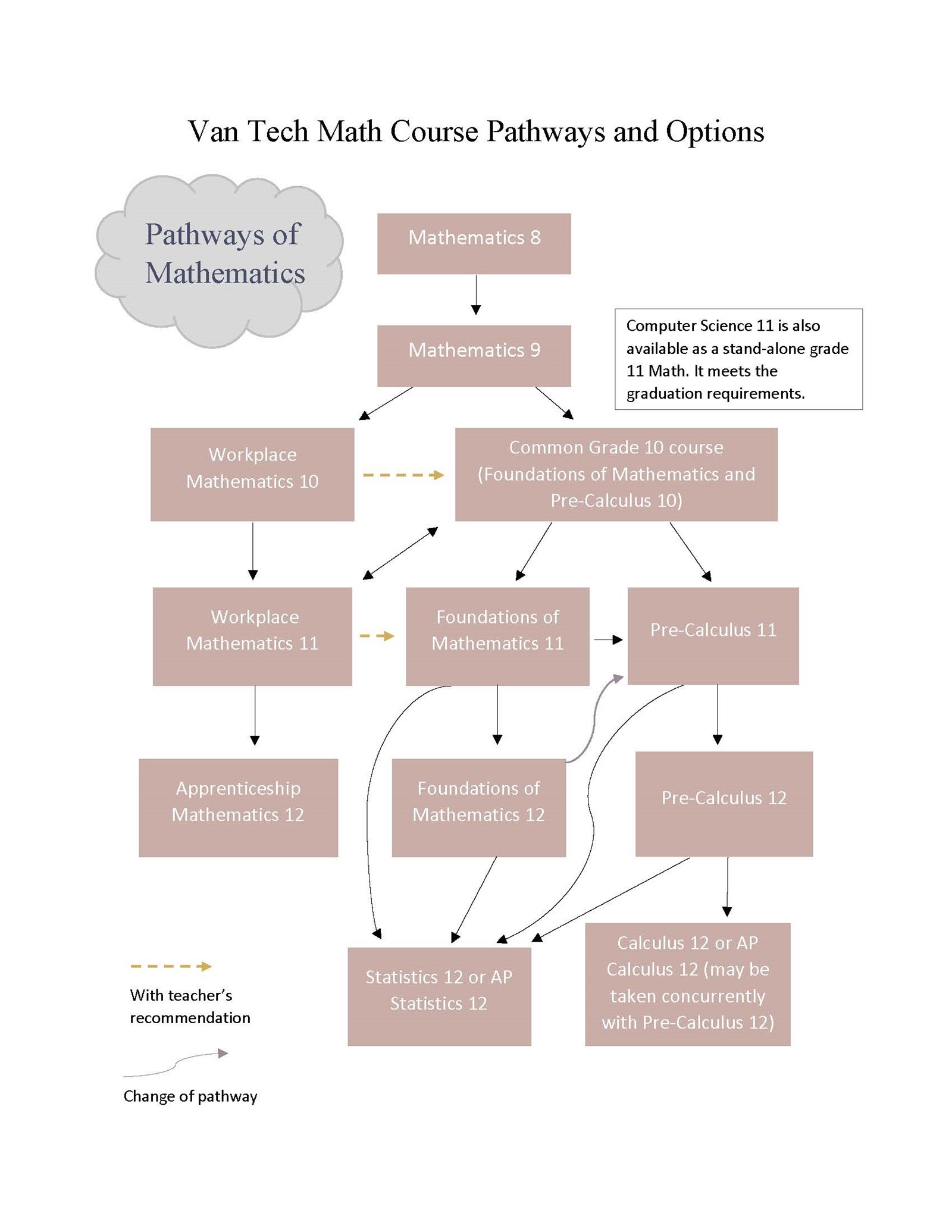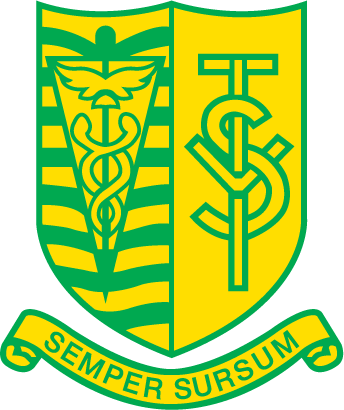Math Dept
Math Pathways:
(see school course selection handbook or Course Descriptions (pdf below) for more information)
Math Dept VT Course Descriptions.pdf
Mathematics Pathways
Starting at the grade 10 level, students are provided with the opportunity to choose 1 or more “pathway” in Mathematics. Regardless of which pathway is chosen, students must successfully complete a grade 11 Mathematics course in order to meet the graduation requirements.
Workplace Mathematics
This pathway is designed to provide students with the mathematical understandings and critical-thinking skills identified for entry into the majority of trades and for direct entry into the work force. Topics include algebra, geometry, measurement, number, statistics and probability, and financial literacy.
Sample Post-Secondary options include: Technical College, Trade School, Direct Entry to Workplace, Economics, History,
Foundations of Mathematics
This pathway is designed to provide students with the mathematical understandings and critical-thinking skills identified for post-secondary studies in programs that do not require the study of calculus. Topics include financial mathematics, geometry, measurement, number, logical reasoning, relations and functions, statistics and probability.
Sample Post-Secondary options include: University Arts and Social Sciences (Anthropology, Criminology, Humanities, Languages, Political Science, Psychology), Communication, Education and “Undecided”.
Pre-Calculus
This pathway is designed to provide students with the mathematical understandings and critical-thinking skills identified for entry into post-secondary programs that require the study of calculus. Topics include algebra and number, measurement, polynomials, logarithms, relations and functions, trigonometry, conics, and series.
Sample Post-Secondary options include: Math, Science, Engineering, Business Administration, Medicine
All three pathways are designed to provide students with mathematical understandings and critical thinking skills. It is the choice of topics through which those skills are developed that varies among the pathways. The common goal of all pathways is to provide prerequisite skills, knowledge and competencies necessary for specific career choices while still providing mathematically rigorous courses.

